Description
On 08 May 2024, The Avoidable Deaths Network became a part of UNOCHA’s Networks and Partnerships Group, affiliated with the Leading Edge Programme.. From 2025, individuals and organisations will be able to organise sessions at the Humanitarian Networks and Partnerships Weeks under the ambit of the Avoidable Deaths Network in Geneva
ADN engages in cutting-edge, evidence-based research, celebrates the annual ‘International Day for Avoidable Deaths,’ and organises public engagement and capacity-building programmes. Our initiatives focus on preventing human fatalities from natural hazard disasters in low- and middle-income countries, supporting the Sendai Framework’s first two global targets, and empowering policymakers, practitioners, and vulnerable communities to make informed decisions that save lives.
The Humanitarian Networks and Partnerships Week (HNPW) is a premier forum where humanitarian networks and partnerships convene to tackle key issues. Bringing together participants from the UN, NGOs, Member States, academia, and more, it fosters collaboration, annual meetings, and the exchange of expertise to address shared challenges in humanitarian affairs.
ADN’s advocacy aligns with global humanitarian goals by raising awareness of avoidable disaster deaths and promoting disaster risk reduction. Engaging with governments, regional organizations, and forums like HNPW, ADN amplifies the voices of affected communities, fosters resilience, and advocates for policies that save lives and reduce disaster impacts, grounded in humanitarian principles and international law.
ADN UNOCHA HNPW Events
ADN has actively participated in past UNOCHA HNPW events, contributing to discussions on disaster risk reduction, sharing expertise on reducing avoidable deaths, and fostering collaborations with global humanitarian networks.
2026
ADN is excited to announce its participation in the 2026 UNOCHA HNPW, where it will host webinars, taking place from 2-6 March 2026. Stay tuned for more details!
2025
In-person sessions
Anticipatory Action to Avoid Disaster Deaths in Urban Areas
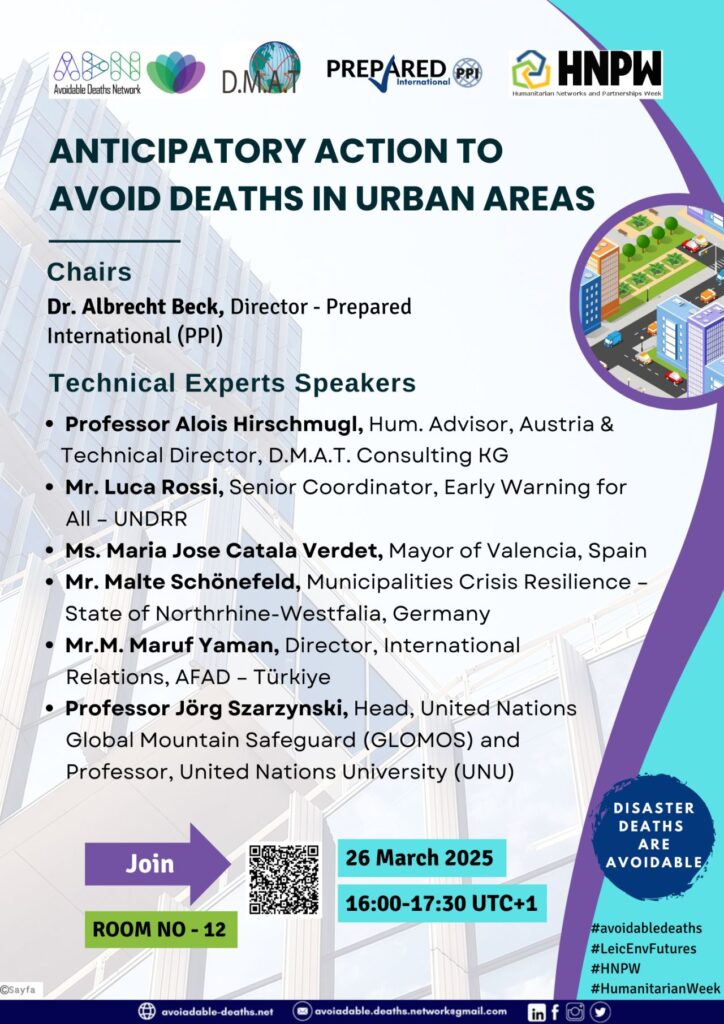
The in-person session who took place on 26 March 2025 from 16:00–17:30 (UTC+1) at Salle 12, CICG, Geneva, focused on strategies for implementing proactive, ‘anticipatory’ measures in dense urban settings to drastically reduce disaster-related fatalities before an event occurs. The discussion was driven by eight speakers, who shared insights and case studies with the 27 registered participants, emphasizing the critical need for early warning systems and pre-planned actions tailored to the unique complexities of cities.
Why do so many people die in disasters and how can we reduce them?
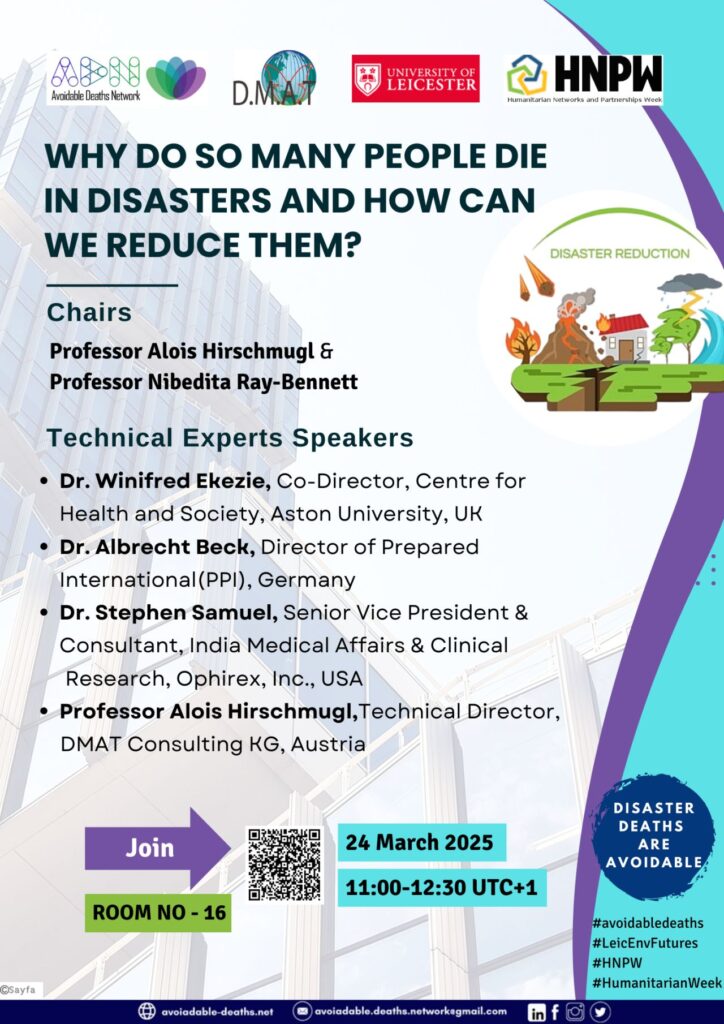
The session held on 24 March 2025 from 11:00–12:30 (UTC+1) at Salle 16 ,directly tackled the critical question of high disaster mortality rates, analyzing the underlying factors and systemic vulnerabilities that lead to significant loss of life. With six speakers presenting their expertise, the discussion focused on identifying and promoting effective strategies, including early warning, preparedness, and structural measures, to drastically lower the death toll in future disasters. The important discussion involved 44 registered participants.
Online sessions
Debate on the Scope of Social Media during Crisis Communication

The online webinar who took place on 21 March 2025 from 09:00-10:00 (UTC-5) was a debate among three speakers regarding the role and limits of social media platforms in disseminating information, coordinating responses, and managing public perception during a crisis. The discussion addressed the critical balance between speed and accuracy, and the challenges of misinformation, drawing in an audience of 92 registered participants keen to explore best practices and ethical considerations in this rapidly evolving field.
The Impact of Climate-Related Disasters on Early Marriage and Reproductive Health in Bangladesh
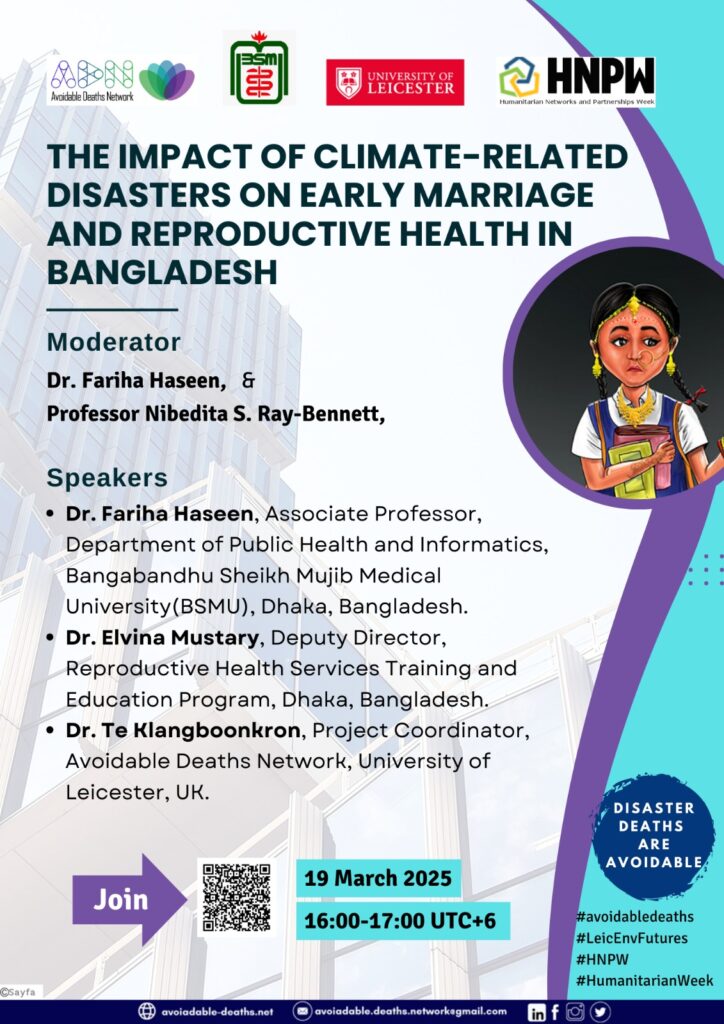
The online webinar held on 19 March 2025 from 16:00-17:00 (UTC+6) focused on the critical and complex humanitarian challenges faced by Bangladesh, specifically exploring how climate disasters intensify the risks of early marriage and negatively affect reproductive health outcomes. The event featured five speakers who presented their findings and perspectives to an audience of 98 registered participants, underscoring the urgent need for integrated climate and social protection policies.
Land-Based Approaches to Address Human-Induced Disaster Adaptation
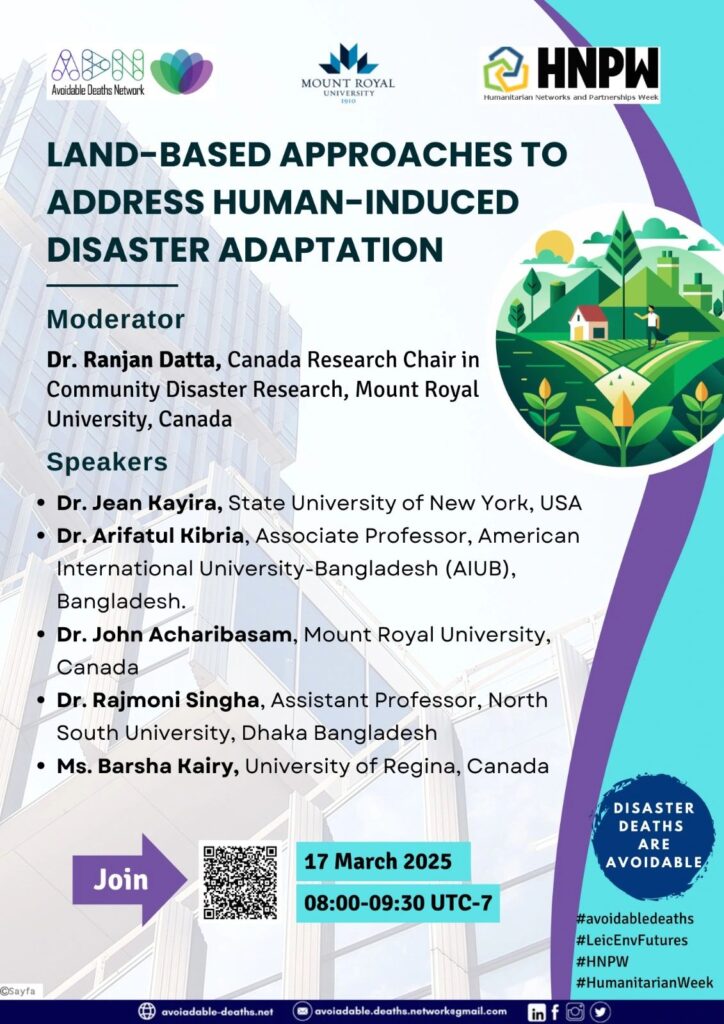
This webinar who took place online on 17 March 2025 from 08:00–09:30 (UTC-7) attracted 104 registered participants and featured six speakers who discussed essential land-based and nature-focused strategies for building resilience and adapting to disasters accelerated by human activities.
2024
Quite Interesting (QI) Quizzes for Avoidable Disaster Deaths
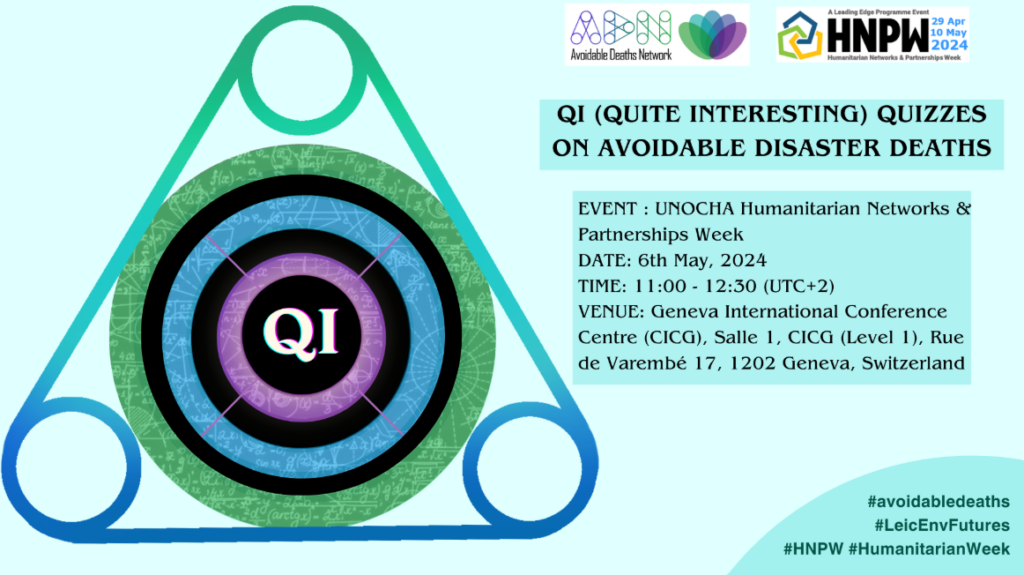
On 6 May 2024, ADN hosted the side event Quite Interesting (QI) Quizzes for Avoidable Disaster Deaths during the HNPW 2024 conference, fostering knowledge exchange on reducing disaster deaths. For more information, please click here.
2022
Virtual Session on Avoidable Deaths: Anticipatory Framework to Reduce Disaster Deaths
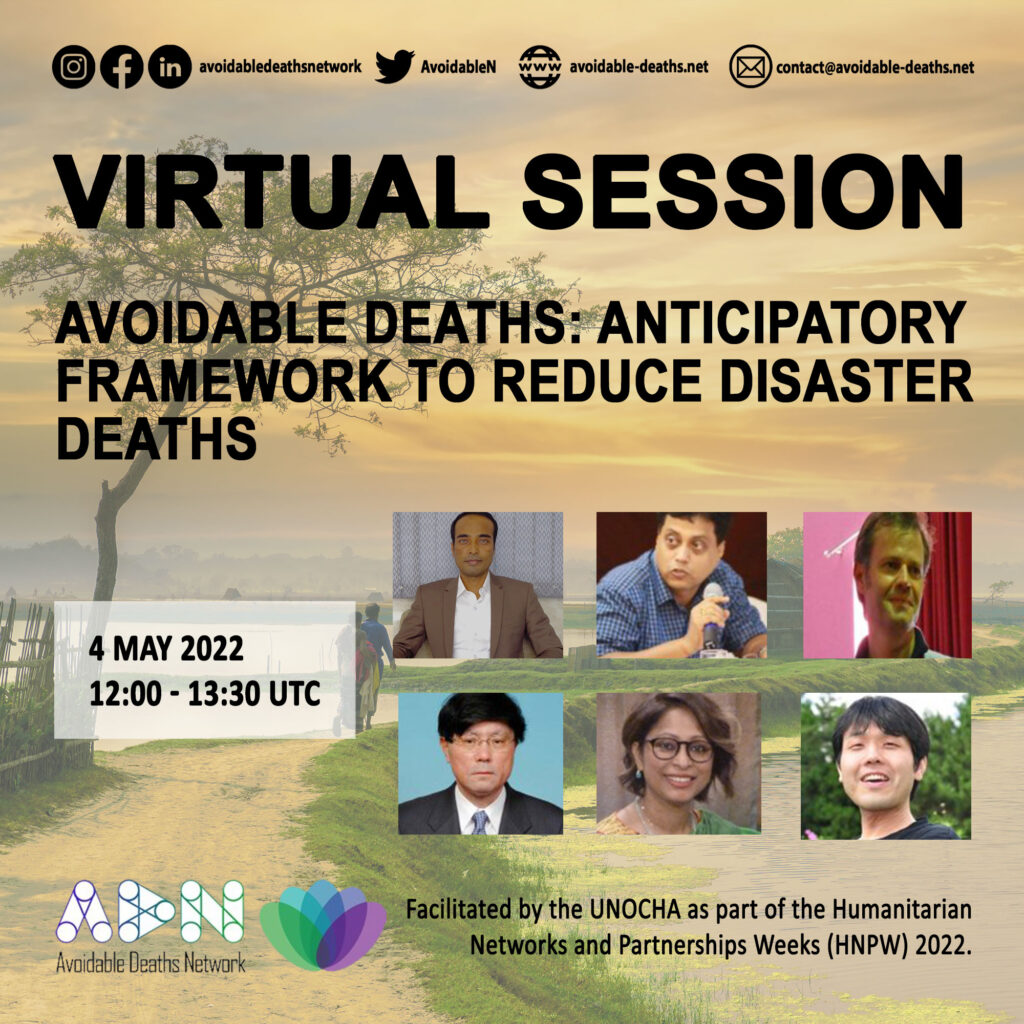
On 4 May 2022, ADN hosted a global webinar at UNOCHA HNPW, focusing on the Avoidable Deaths Framework as a tool for anticipatory action to reduce disaster deaths.
Chaired by Dr. Hideyuki Shiroshita, the session featured presentations by experts from academia, NGOs, and industry, sharing impactful measures to prevent disaster deaths locally and globally. Speakers included Dr. Nibedita Ray-Bennett, Mr. Sheikh Khairul Rahaman, Dr. Ambika Prasad Nanda, and Dr. Albrecht Beck, with concluding remarks by Professor Norio Okada. For more information, please click here.
